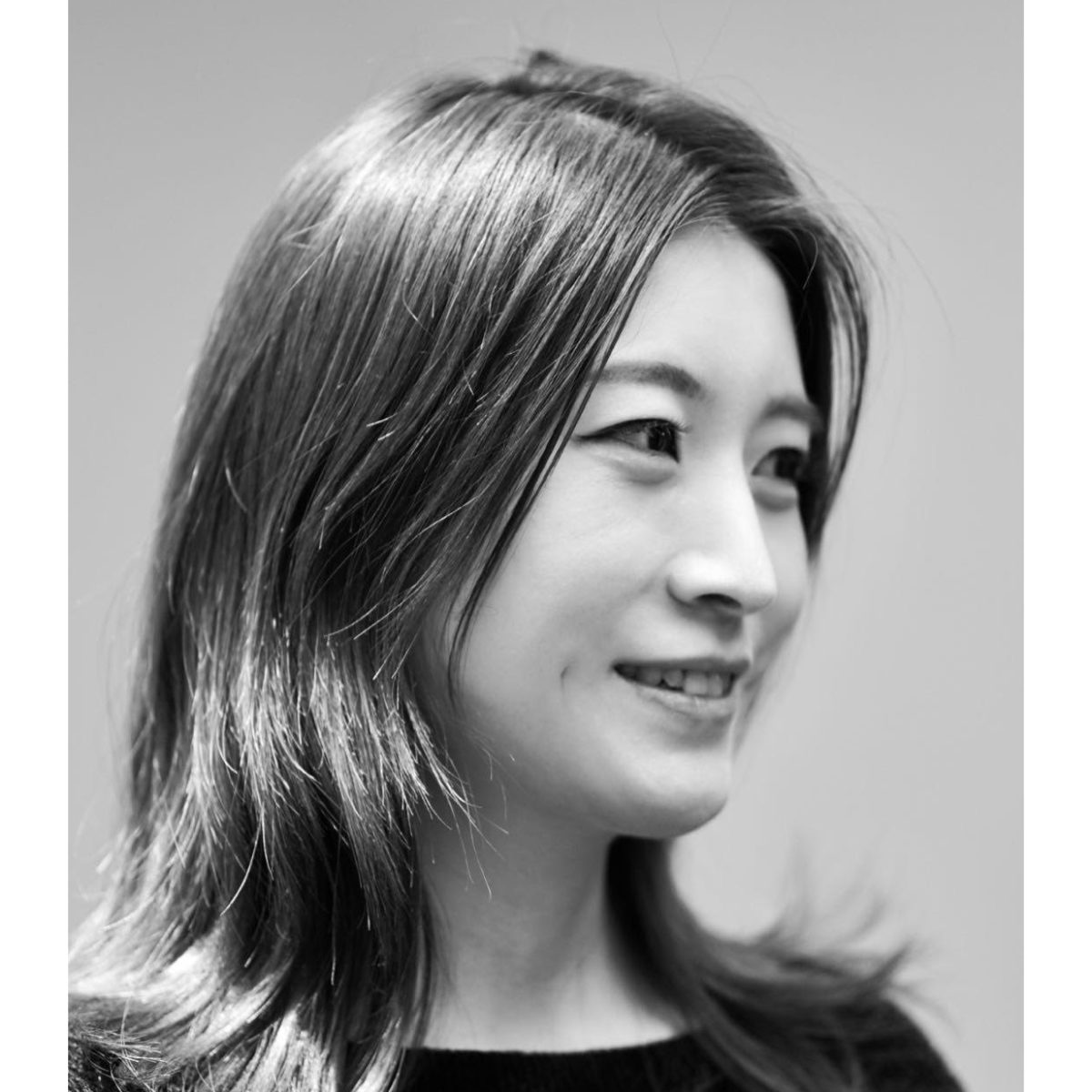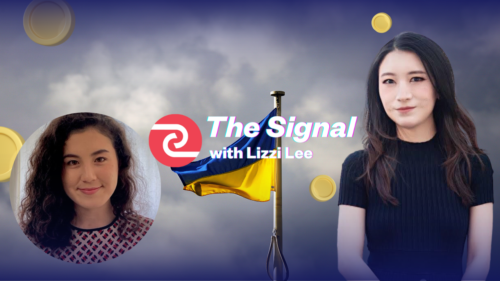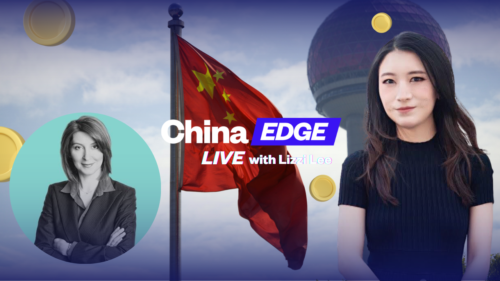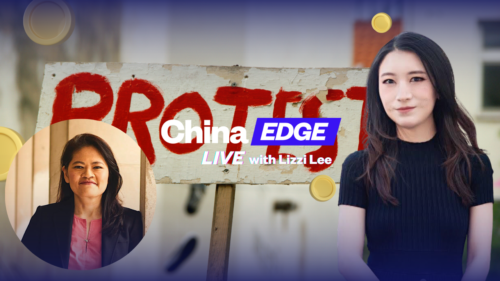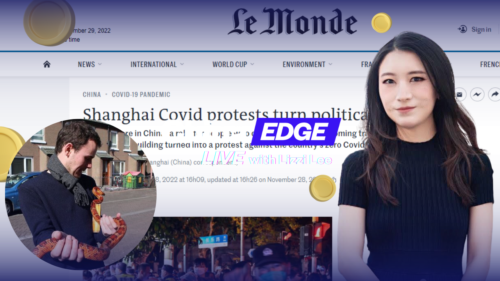China’s COVID zero pivot | Live with Lizzi Lee
James Zimmerman, a partner in the Beijing office of Perkins Coie, talks about China's U-turn on its COVID zero policy, and what to expect next.
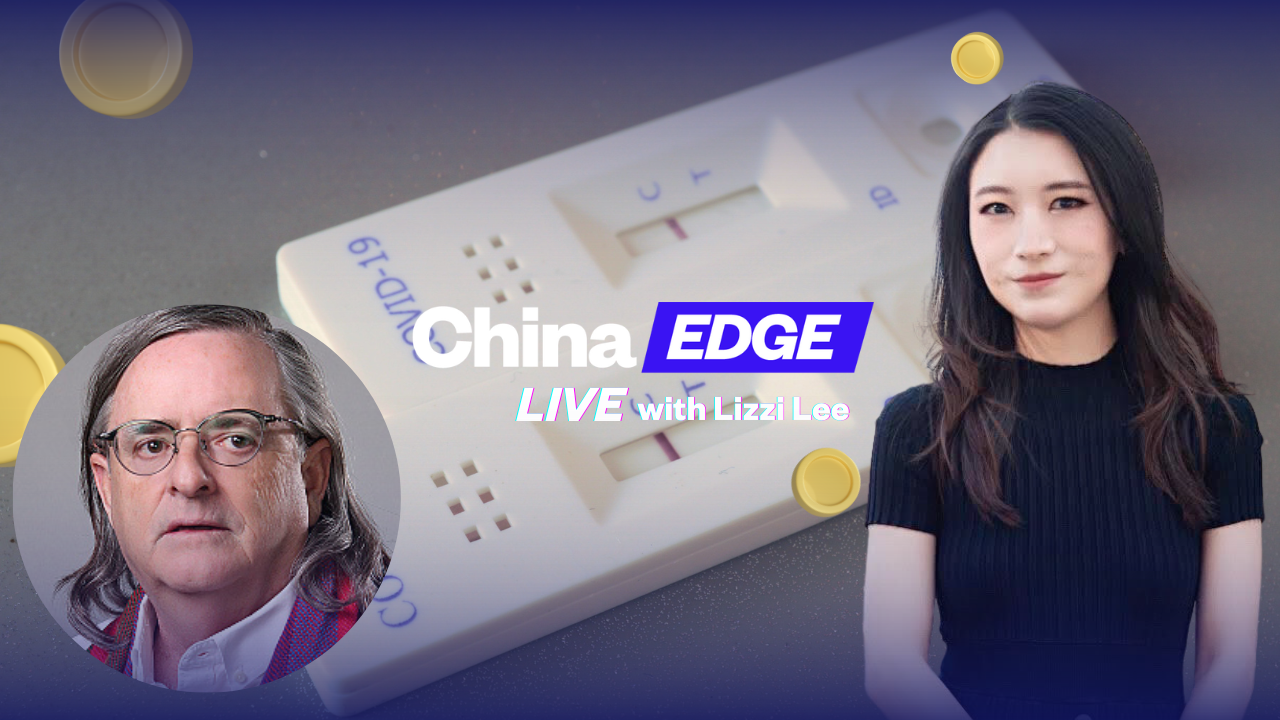
In this episode of Live with Lizzi Lee:
James Zimmerman, a partner in the Beijing office of Perkins Coie, talks about life in and out of lockdowns, China’s COVID zero protests and policy U-turn, and what might lie ahead.
Below is a transcript of the video:
Lizzi Lee: Joining me today is Mr. James Zimmerman, a partner in the Beijing office of Perkins Coie LLP.
Previously, Jim was elected to four terms as chairman of the American Chamber of Commerce in China. Jim is an active member in the foreign business community in Beijing. Thank you so much, Jim, for joining me.
James Zimmerman (Jim): Pleasure to be here.
Lizzi: So, Jim, tell us a little more about life in China under zero-COVID. You were in China for the past few years, right?
Jim: Yeah, it’s been very difficult. It’s like a roller coaster right now with things changing almost every day. You wake up in the morning, there’s something new going on. You know, the policies within the government are confusing a lot of people. You know, we’re not sure what’s going to happen next.
Just two weeks ago, they were making announcements and pronouncements that zero-COVID was something that we had to live with and that we needed to move forward with the lockdowns, quarantines and massive testing, and it was very frustrating. And then all of a sudden, within the last week, everything is changing, everything is relaxing.
And the whole media, the whole Chinese media seems to be taking this approach saying it’s okay to live with COVID. So how things move forward, you’re trying to second guess what the government’s up to.
I view that this is all driven by economic issues, the economy. But still, there are some things about zero-COVID that still haven’t been changed. And that one of those things is with respect to schools, the schools are not open, which is very frustrating for a lot of working parents. You know, they have their kids at home, and they must find ways to continue to make sure that they’re following classes online. So, until they open the schools, a lot of folks believe that there’s really no relaxation of zero-COVID.
Lizzi: As you mentioned, things are obviously changing very fast and it’s hard to keep up with the latest policies. We do see that there seems to be this U-turn in terms of policy direction. And COVID cases are surging.
There have been multiple protests emerging in multiple cities in China. Did those protests play a role in sort of forcing the central government’s hand in turning its COVID policy in a new direction? What do you think is the real driver of all those changes?
Jim: Well, I do think the protest was a wake-up call for the leadership. You know, they saw this as a threat to Party policy. They saw it as a threat to Party legitimacy. Having said that, they were not going to change policy just because of the protest. They were not going to react to what the protesters are doing and say, okay, you’re right. They’re just not going to do that. They’re never going to admit that the policies were wrong.
In fact, the protests in general were met with a very heavy hand. And there’s still a lot of repercussions for several protesters, you know, foreign media representatives and journalists that attended the protests.
It’s been kind of frustrating how the government is reacting to the protests, but it’s not the protests alone. It’s not the reason why the government is relaxing zero-COVID. It really is an economic issue. Across the board, the economy is not doing very well anywhere from the exports to imports, to consumer spending, to real estate, things that things are not looking up. And so they realized that they need to act quickly.
Unfortunately, this is not a great time to relax zero-COVID because they still haven’t really moved forward with their vaccination drive. They still got a lot of room for improvement with that, but to answer your question, I don’t think that the protests were this whole issue, which triggered the relaxation, but it clearly was a wakeup call for the government.
Lizzi: And many of us in the journalist community have seen multiple protesters and organizers taken away by Chinese police. Will they face consequences, as they say, qiū hòu suàn zhàng (秋后算账)? What do you think is Beijing’s calculus here?
Jim: Well, I do think that those that were leading in a sense of pushing out information about the protests on social media or leading the protest in person, I mean, all of those people face consequences at a minimum.
And they’re going to be on some watch lists of the State Security Bureau, but some too, as I know, have been visited, if they haven’t been detained, have been visited at home, received phone calls. So, there are consequences to this which is unfortunate because in some respects, the government should be listening to the people.
But I think what happens when they crack down, this creates a whole new storyline and then something that is just going to add to the list of grievances that people have said that may be better off to let people vent, get it out of their system, and move on.
Lizzi: So, we’ve been talking about the timetable for China to access zero-COVID for a while. People talk about the Olympic Games, people talk about the 20th Party Congress, etc.,
What’s your take on China’s current timetable to fully exit its zero-COVID policy, based on the situations you’ve seen on the ground and the information you have?
Jim: It’s really a guessing game. If you asked me two months ago, six months ago, I would have had a different answer. So, we must be very, very careful about anticipating what the government’s going to do.
Having said that, it seems like they’re relaxing things almost every day. But until they open the schools, until they open up international travel and domestic travel, I think that it’s still going to be a situation where zero-COVID is still around in some form.
You know, they’ve changed the name of the whole policy to like dynamic zero-COVID, which whatever that means I still think that there’s going to be policies in place that can control as much as possible the pandemic.
Having said that, you know, we could see a complete return to lockdowns and quarantine as we’ve seen the last year. And if the number of illnesses and infection rates increases to the point that it’s going to overwhelm the healthcare system… So, to answer your question, it’s anyone’s guess as to what the timetable will be on whether China completely normalizes both its economy and its response to the pandemic.
Lizzi: And China’s pandemic control policy has taken a toll on the supply chain, as Wall Street Journal reported a few days ago, Apple is accelerating moving its supply chain out of China in the wake of the Foxconn factory lockdown and massive labor protests. How representative is Apple’s move? Will foreign businesses move back to China after COVID?
Jim: I think first and foremost is that people are not completely decoupling out of China. We haven’t seen that. What we’re seeing is more strategic recalibration, you know, reviewing their supply chain within China. And for the sake of resilience, for the sake of ensuring revenue flows, they must look at what’s happening.
And it’s not just because of zero-COVID restrictions. It’s also for a lot of reasons that people are starting to be more strategic about their investments in China. Not just with zero-COVID, but also Beijing’s relationship with Russia is causing a lot of heartburn for businesses, especially European companies. But also, issues concerning cross-strait relations, human rights issues and so forth.
There’s a whole laundry list of things that people are taking into consideration in reviewing, you know, strategically reviewing their investments in China. Having said that, we have not seen a huge increase in decoupling at all. I think it’s more of just strategic reshoring.
Lizzi: And finally, let’s talk about your forthcoming book. I’m super interested in this one: The Peking Express: The Bandits Who Stole the Train, Stunned the West, and Broke the Republic of China. So, tell us a little more about the book. What is the book about?
Jim: Well, thank you. It’s a true story from 1923. It’s a story of bandits and political intrigue. It’s a story of heroes. It’s something that took place in 1923 that people have largely forgotten. It’s about China’s great train robbery that took place where over 100 people, 25 borders, 75 Chinese were dragged across the countryside and had to endure 37 days, you know, of hostage negotiations.
Things end very differently for a lot of people that are caught up in this situation. But it is an exciting story. It’s something that happened during an interesting and unique time in China. A lot of unique characters. It will be coming out in both book form as well as in electronic form and in audio form on April 4, 2023, which is one month before the 100th anniversary of the event.
But thank you for asking. And I’m hoping everyone will enjoy reading the book. Happy to share my thoughts on that further at a different time. Thank you.
Lizzi: Fantastic. We’ll put a link to the book’s website so our audience can take a deeper look at some of the content the book has to offer. But what are the lessons for today from your book?
Jim: Well, there’s quite a bit. What we’re seeing is that hostage diplomacy is alive and well in the world, not just in China, but in other parts of the world. And that story is about hostage diplomacy and the impact on the people that were involved in the incident. So there very much is a lot of lessons for U.S.-China and China-European relations. And so that’s something that, you know, is reflected in the story and reflected in the book itself.
